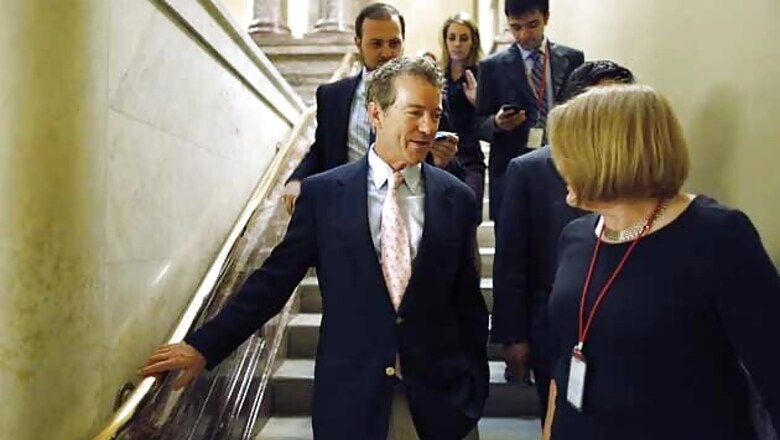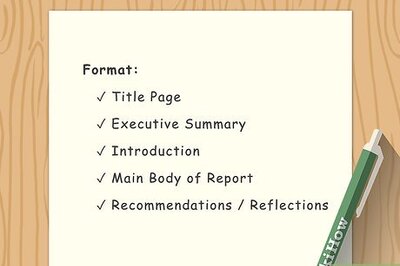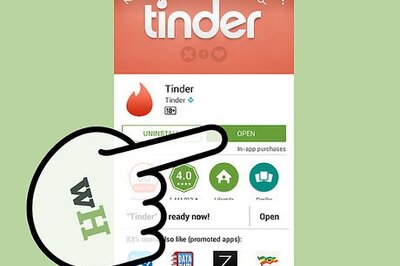
views
Washington: The US government was headed toward a shutdown over Republican efforts to halt President Barack Obama's healthcare reforms using a temporary spending bill even as efforts emerged to try to negotiate a deal.
US House of Representatives Republicans, in a bid to break the logjam over the spending bill, are expected to seek the creation of a bipartisan negotiating panel with the Senate, according to a senior Republican aide.
But it was not clear whether Senate Democrats would accept the offer. Furthermore, such a panel could not meet before a midnight government shutdown deadline, almost certainly assuring that government agencies will have to curtail operations on Tuesday.
Earlier on Monday, competing spending measures flew back and forth between the Republican-controlled House of Representatives and Democratic-led Senate with increasing rapidity and without any sign of compromise.
With the law funding thousands of routine government activities set to expire at midnight, the House repeatedly insisted that the measure to fund the government include a delay of Obamacare, knowing it would be rejected by the Senate.
With just a few hours to go, the House once again attached an Obamacare delay to the spending bill. In response, the Senate promptly stripped the delay and sent the measure back to the House.
It was the third such rejection by the Democratic-controlled Senate in a week.
A shutdown would leave some essential functions like national security intact but sharply cut many regulatory agencies, furloughing up to a million federal workers.
Neither body wanted to get stuck holding the funding measure at midnight, for fear of being identified as the one that ultimately didn't pass it, leading to the game of hot potato with rival funding bills.
An anticipated revolt by moderate House Republicans fizzled earlier on Monday after House Speaker John Boehner made personal appeals to many of them to back him on a key procedural vote, said Republican Representative Peter King of New York.
"John said, 'This is going to work out. Trust me,'" said King, one of only a handful of at least two dozen House Republican moderates who rejected the appeal and voted "no."
Boehner prevailed on the procedural vote 225-204.
After Boehner made his personal appeal, House Democratic Whip Steny Hoyer called on him to permit a vote on a simple extension of federal funding of the government without any Obamacare add-ons.
"I dare you to do that," Hoyer roared, confident such a measure would win bipartisan approval. "Let democracy work."
'Wrench into the gears'
On Monday afternoon, Obama appeared resigned to a shutdown, stepping into the White House press room to reiterate that the shutdown would be the fault of the "extreme right wing" of the Republican Party, referring to the conservative Tea Party.
He also reassured the public that while poor people and seniors, among others, would continue to receive benefit checks in the event of a shutdown, many other functions of government would grind to a halt, throwing "a wrench into the gears of our economy."
And he taunted Republicans about Obamacare, a program aimed at providing healthcare coverage to millions of uninsured Americans. It "takes effect tomorrow no matter what Congress decides to do today ... you can't shut it down."
Republicans say the launch on Tuesday of new online government health insurance exchanges will cause premiums to rise and deter companies from hiring new workers.
The White House later said Obama placed calls to top lawmakers, continuing to press the Republican leadership for six weeks of government funding, free of any "ideological riders."
Obama also signed a measure that would ensure troops get paid in the event of a shutdown. The bill was passed by the House on the weekend and the Senate on Monday.
Americans are split over whether funding for Obama's signature healthcare law should be linked to measures that pay for US government operations, but more will blame Republicans if the government has to shut down on Tuesday, according to a new Reuters/Ipsos poll.
The duration of the "funding gap," the bureaucratic term for a partial government shutdown, would depend on when lawmakers finally approve a funding bill.
Some functions deemed essential, such as US Department of Agriculture meat inspections, would continue. Other agencies, like the Environmental Protection Agency, will furlough most of their workers.
A shutdown would continue until Congress resolves its differences. That could be a matter of days, or weeks.
The standoff does not bode well for the next political battle, a far-more consequential bill to raise the federal government's borrowing authority. Failure to raise the $16.7 trillion debt ceiling by mid-October would force the United States to default on some payment obligations - an event that could cripple its economy and send shockwaves around the globe.




















Comments
0 comment